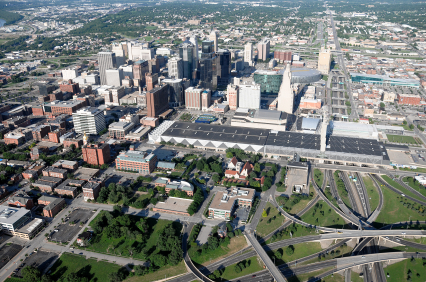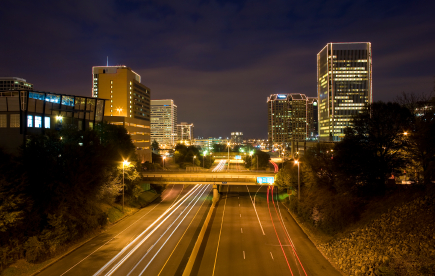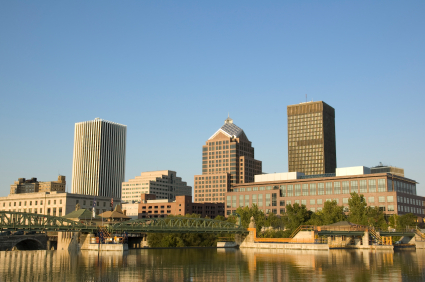
Profit and prosper with the best of Kiplinger's advice on investing, taxes, retirement, personal finance and much more. Delivered daily. Enter your email in the box and click Sign Me Up.
You are now subscribed
Your newsletter sign-up was successful
Want to add more newsletters?

Delivered daily
Kiplinger Today
Profit and prosper with the best of Kiplinger's advice on investing, taxes, retirement, personal finance and much more delivered daily. Smart money moves start here.

Sent five days a week
Kiplinger A Step Ahead
Get practical help to make better financial decisions in your everyday life, from spending to savings on top deals.

Delivered daily
Kiplinger Closing Bell
Get today's biggest financial and investing headlines delivered to your inbox every day the U.S. stock market is open.

Sent twice a week
Kiplinger Adviser Intel
Financial pros across the country share best practices and fresh tactics to preserve and grow your wealth.

Delivered weekly
Kiplinger Tax Tips
Trim your federal and state tax bills with practical tax-planning and tax-cutting strategies.

Sent twice a week
Kiplinger Retirement Tips
Your twice-a-week guide to planning and enjoying a financially secure and richly rewarding retirement

Sent bimonthly.
Kiplinger Adviser Angle
Insights for advisers, wealth managers and other financial professionals.

Sent twice a week
Kiplinger Investing Weekly
Your twice-a-week roundup of promising stocks, funds, companies and industries you should consider, ones you should avoid, and why.

Sent weekly for six weeks
Kiplinger Invest for Retirement
Your step-by-step six-part series on how to invest for retirement, from devising a successful strategy to exactly which investments to choose.
If the daily slog through rush-hour gridlock is wearing through your tires, your psyche and your pocketbook, consider our list of the ten American cities with the easiest, most affordable commutes. To make the cut, our cities all have a metro population of at least 1 million and a low congestion cost (a measurement of wasted time and fuel calculated by the Texas Transportation Institute). We also factored in the average length of commute, local gas prices, yearly delays per commuter, and public transit use.
Our winners have some shared characteristics. Their congestion costs all fall below $550 per person (the national average is $808). Some have seen massive
population declines, clearing out roadways built for heavy travel.
Others take advantage of excellent road networks, and lots of urban parking lots. All have some of the happiest, least-stressed urban commuters in the country.
NATIONAL AVERAGES:
- Average Commute Time: 25 minutesYearly Congestion Cost per Commuter: $808
- Average Length of Commute: 11.79 miles
- Cost of Regular Gas: $3.23 per gallon
- Yearly Delays per Commuter: 34 hours
- Yearly Fuel Wasted per Commuter: 28 gallons
- Public Transit Users: 5%
By Susannah Snider
March 2011

10. Hartford Conn.
- Population: 1,195,998
- Average Commute Time: 22.6
- Yearly Congestion Cost per Commuter: $541
- Average Length of Commute: 13.92 miles
- Cost of Regular Gas: $3.38
- Yearly Delays per Commuter: 24 hours
- Yearly Fuel Wasted per Commuter: 21 gallons
- Public Transit Users: 3.3%
Hartford edges out Sacramento for the last spot on our list of easy, affordable commutes. The city offers a free downtown circulator bus service called the Star Shuttle. There are 45 parking garages downtown, some of which are free, and lots of on–street parking.

9. Louisville, Ky.
- Population: 1,258,577
- Average Commute Time: 23.0
- Yearly Congestion Cost per Commuter: $521
- Average Length of Commute: 10.62 miles
- Cost of Regular Gas: $3.27
- Yearly Delays per Commuter: 22 hours
- Yearly Fuel Wasted per Commuter: 19 gallons
- Public Transit Users: 2.8%
At the intersection of the Watterson (I-264) and Gene Snyder (I-265) highways, Louisville offers 13 city-owned downtown parking garages and six lots. Commuters can buy monthly parking permits or use prepaid parking meter smart cards, which refund the
minutes you don’t use. Commutes are shorter, congestion is low.

8. Kansas City, Mo.-Kan.
- Population: 2,067,585
- Average Commute Time: 22.6
- Yearly Congestion Cost per Commuter: $498
- Average Length of Commute: 9.16 miles
- Cost of Regular Gas: $3.04
- Yearly Delays per Commuter: 21 hours
- Yearly Fuel Wasted per Commuter: 20 gallons
- Public Transit Users: 1.7%
Most Kansas City commuters drive, taking advantage of the city’s flat, expansive highway system. Downtown features easy access from I-70, I-35 and U.S. 71 roadways. Parking is abundant, with nearly 22,000 parking spots downtown. Prices vary, but many spots are free (for a max of three hours). Gas is cheap here, too, relative to the rest of the country.

7. Cincinnati Ohio-Ky.-Ind.
- Population: 2,171,896
- Average Commute Time: 23.7
- Yearly Congestion Cost per Commuter: $451
- Average Length of Commute: 10.52 miles
- Cost of Regular Gas: $3.28
- Yearly Delays per Commuter: 19 hours
- Yearly Fuel Wasted per Commuter: 15 gallons
- Public Transit Users: 3.2%
Cincinnati’s metro population of more than 2 million (the largest on our list) hardly clogs up the roads. 3.2% of the city’s residents use public transit, which includes two bus services: The city-owned METRO and Kentucky’s TANK service. Cincinnati also plans to add a streetcar to the mix, a major project
which seeks to replicate transit
systems in Atlanta and Seattle.

6. Cleveland, Ohio
- Population: 2,091,286
- Average Commute Time 23.9
- Yearly Congestion Cost per Commuter: $423
- Average Length of Commute: 10.81 miles
- Cost of Regular Gas: $3.27
- Yearly Delays per Commuter: 19 hours
- Yearly Fuel Wasted per Commuter: 16 gallons
- Public Transit Users: 4.8%
Cleveland boasts the highest rate of public transit users on our list, with 4.8% of its residents taking advantage of the city’s buses and trolleys. In October, the city opened its $9.6 million Stephanie Tubbs Jones Transit Center, a downtown bus hub. Population losses have made its heavy-duty highway system a boon for commuters.

5. Buffalo-Niagara Falls, N.Y.
- Population: 1,123,804
- Average Commute Time: 20.8
- Yearly Congestion Cost per Commuter: $417
- Average Length of Commute: 8.15 miles
- Cost of Regular Gas: $3.38
- Yearly Delays per Commuter: 17 hours
- Yearly Fuel Wasted per Commuter: 16 gallons
- Public Transit Users: 4.1%
Snow happens in Buffalo. But congestion hardly does. The 1.4-mile, 110-foot-tall Skyway offers a fast journey from South Buffalo to downtown (although ice sometimes makes it impassable). Buffalo’s population has halved in the past 60 years. The
double-edged result is easy driving for those who remain.

4. Richmond, Va.
- Population: 1,238,187
- Average Commute Time: 24.5
- Yearly Congestion Cost per Commuter: $411
- Average Length of Commute: 12.31 miles
- Cost of Regular Gas: $3.08
- Yearly Delays per Commuter: 19 hours
- Yearly Fuel Wasted per Commuter: 16 gallons
- Public Transit Users: 2.3%
Richmond is easily traveled by car, with several major highways feeding right through the center of the city. Average temperatures rarely dip below freezing, giving Richmond the perfect commuting weather. The nightmare congestion of I-95 around Washington, D.C., 120 miles to the north is far, far away. Gas prices are lower than the national average, too.

3. Providence-New Bedford-Fall River, R.I.-Mass.
- Population: 1,600,642
- Average Commute Time: 23.9
- Yearly Congestion Cost per Commuter: $406
- Average Length of Commute: 11.62 miles
- Cost of Regular Gas: $3.26
- Yearly Delays per Commuter: 19 hours
- Yearly Fuel Wasted per Commuter: 15 gallons
- Public Transit Users 2.9%
Located at the crux of I-95 and I-195, the capital of the Ocean State boasts convenient highway access. In addition to 40 parking garages, the city has more than 1,000 on-street parking spaces that charge about $1 per hour. Yearly fuel wasted here is almost half the national average.

2. Columbus, Ohio
- Population: 1,801,848
- Average Commute Time: 22.8
- Yearly Congestion Cost per Commuter: $388
- Average Length of Commute: 12.30 miles
- Cost of Regular Gas: $3.28
- Yearly Delays per Commuter: 17 hours
- Yearly Fuel Wasted per Commuter: 15 gallons
- Public Transit Users: 2.2%
What else can you expect from a city whose mayor, Michael B. Coleman, is nicknamed “Bikin’ Mike”? Columbus supports a bike-friendly commuter culture while pouring money into its roadways. Over the past several years, the city has teamed up with the Ohio Department of Transportation to improve safety and conditions on its I-70/71 corridor.

1. Rochester, N.Y.
- Population: 1,035,566
- Average Commute Time: 18.7
- Yearly Congestion Cost per Commuter: $273
- Cost of Regular Gas: $3.38
- Average Length of Commute: 10.23 miles
- Yearly Delays per Commuter: 12 hours
- Yearly Fuel Wasted per Commuter: 11 gallons
- Public Transit Users: 2.9%
Our easiest city for commuters boasts an annual congestion cost that is $100 less than our runner-up. Residents spend a mere 19 minutes on average commuting to work, compared with a national average of 25 minutes. A Roc-City commuter’s chief challenge is the snowfall, which averages about 100 inches annually. But local drivers are snow pros: It’s
not uncommon to see homemade plows clearing
alley ways and driveways after a particularly heavy fall.

More From Kiplinger
The 10 Cheapest Cars to Own
Best New Car Values 2011: Best in Class
Best New Car Values 2011: New Models
Best New Car Values 2011: Best Resale Value
Best New Car Values 2011: Most Fuel-Efficient
TOOL: Compare Data on Hundreds of 2011 New Cars
QUIZ: How to Get the Best Deal on a New Car
10 Cars that Refuse to Die
10 Best Cars of the Past Decade
Sources: U.S. Census Bureau’s 2005-2009 American Community Survey, Texas Transportation Institute’s 2010 Urban Mobility Survey, AAA Fuel Gauge Report (all prices recorded as of 2/24/11) and the Federal Highway Administration’s 2009 National Household Travel Survey
Profit and prosper with the best of Kiplinger's advice on investing, taxes, retirement, personal finance and much more. Delivered daily. Enter your email in the box and click Sign Me Up.
-
 The New Reality for Entertainment
The New Reality for EntertainmentThe Kiplinger Letter The entertainment industry is shifting as movie and TV companies face fierce competition, fight for attention and cope with artificial intelligence.
-
 Stocks Sink With Alphabet, Bitcoin: Stock Market Today
Stocks Sink With Alphabet, Bitcoin: Stock Market TodayA dismal round of jobs data did little to lift sentiment on Thursday.
-
 Betting on Super Bowl 2026? New IRS Tax Changes Could Cost You
Betting on Super Bowl 2026? New IRS Tax Changes Could Cost YouTaxable Income When Super Bowl LX hype fades, some fans may be surprised to learn that sports betting tax rules have shifted.
-
 12 Great Places to Retire in the Midwest
12 Great Places to Retire in the MidwestPlaces to live Here are our retirement picks in the 12 midwestern states.
-
 15 Cheapest Small Towns to Live In
15 Cheapest Small Towns to Live InThe cheapest small towns might not be for everyone, but their charms can make them the best places to live for plenty of folks.
-
 Best Cold Weather Places to Retire
Best Cold Weather Places to RetirePlaces to live Some like it hot; others, not so much. Here are the 12 best places to retire if you can't stand the heat.
-
 The 24 Cheapest Places To Retire in the US
The 24 Cheapest Places To Retire in the USWhen you're trying to balance a fixed income with an enjoyable retirement, the cost of living is a crucial factor to consider. Is your city the best?
-
 The Six Best Places to Retire in New England
The Six Best Places to Retire in New Englandplaces to live Thinking about a move to New England for retirement? Here are the best places to land for quality of life, affordability and other criteria.
-
 Best Cold Weather Places to Retire
Best Cold Weather Places to Retireplaces to live Some like it hot; others not so much. Here are the 12 best places to retire if you can't stand the heat.
-
 15 Ways to Prepare Your Home for Winter
15 Ways to Prepare Your Home for Winterhome There are many ways to prepare your home for winter, which will help keep you safe and warm and save on housing and utility costs.
-
 5 Great Places to Buy a Vacation Home
5 Great Places to Buy a Vacation HomeWant a vacation home for remote work or a fun getaway? Here are locations with median prices under $500K.
